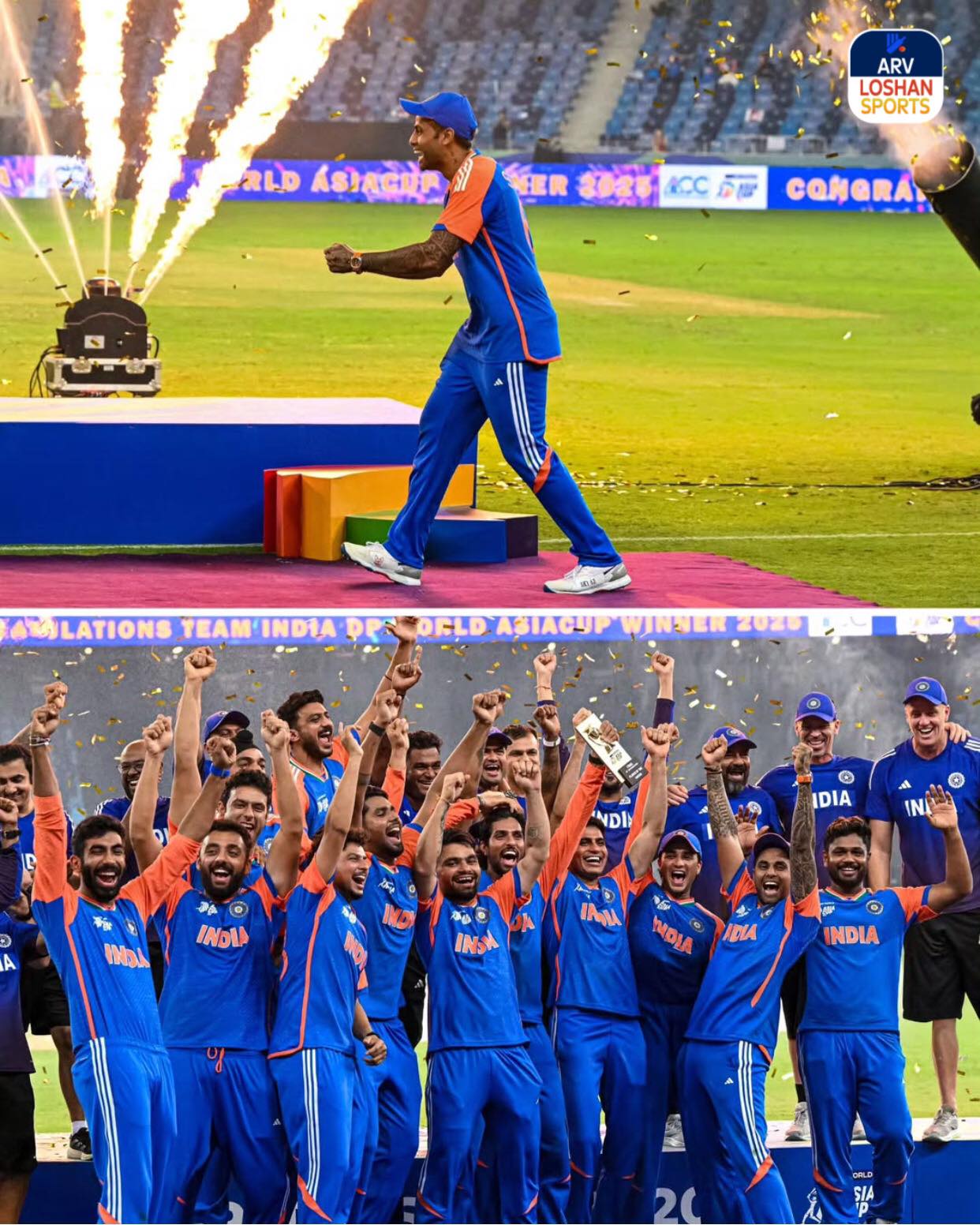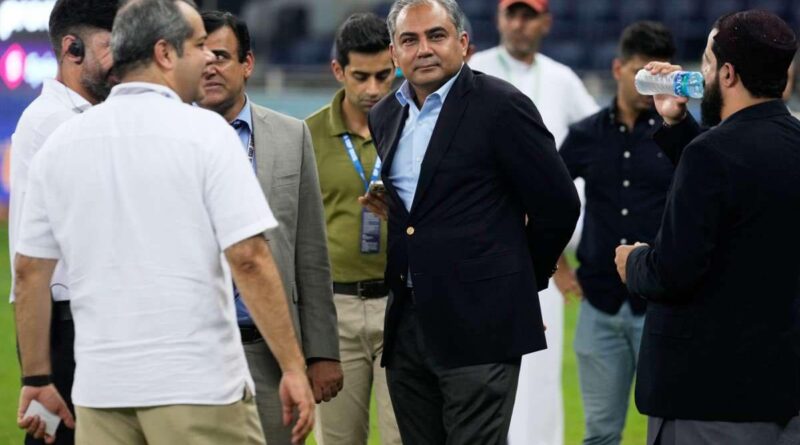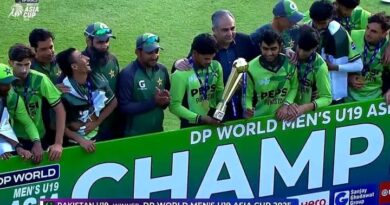Politics Poisons the Pitch: Cricket Legends Rip into BCCI and Team India for Letting Dirty Politics Corrupt the Gentleman’s Game
Cricket legends Kirmani, Kapil, and Azharuddin slam BCCI and Team India for letting politics tarnish the gentleman’s game, warning of irreparable damage to its spirit and legacy.
Mumbai, October 1, 2025
In a damning chorus of outrage that echoes from the hallowed corridors of cricket’s golden era, legendary Indian players have torn into the Board of Control for Cricket in India (BCCI) and the national team for shamelessly dragging the stench of politics onto the sacred turf. The latest flashpoint? The Asia Cup 2025 final, where an Indian squad led by Suryakumar Yadav snubbed the trophy presentation from Asian Cricket Council (ACC) chief and Pakistan Cricket Board (PCB) chairman Mohsin Naqvi, turning a moment of sporting triumph into a grotesque display of geopolitical pettiness. What was once the gentleman’s game—built on camaraderie, fair play, and mutual respect—now reeks of hypocrisy, division, and outright sabotage, with icons like Syed Kirmani, Kapil Dev, and Mohammad Azharuddin leading the charge against this toxic invasion.

Syed Kirmani, the unflappable wicketkeeper from India’s triumphant 1983 World Cup side, didn’t mince words in a blistering interview with ANI, laying bare the soul-crushing decay he’s witnessing. “The way cricket is being played all around… there has been no gentleman-ness in the game,” Kirmani fumed, his voice dripping with the sorrow of a man who once gloved balls under the sun with pure joy. “Politics should not enter sports. Leave politics behind. Whatever has transpired away from the field should stay there.” He went further, confessing a deep personal shame: “I am ashamed as a cricketer… This era of cricket is absolutely depressing. I have put my head down.” Kirmani’s lament isn’t hyperbole—it’s a funeral dirge for a sport that’s lost its innocence, where handshakes are now political landmines and victories taste like ashes.
Echoing this fury is Kapil Dev, the Haryana Hurricane who scripted India’s greatest sporting fairy tale in 1983, only to watch his legacy sullied by the very board he helped elevate. In a fiery India Today interview amid the Asia Cup row, Kapil didn’t hold back: “Stick to sports… Keep cricket above politics.” The man who once united a billion dreams now sees his sport fractured by boardroom barons and government whispers. “As a sportsman, I would like to see that we stick to sports,” he pleaded, slamming the team’s refusal to engage with Pakistani counterparts as a betrayal of cricket’s unifying ethos. Kapil’s words cut deep because they come from the heart of the game—he knows better than anyone how politics doesn’t just taint matches; it assassinates the spirit that turns boys into heroes.
And then there’s Mohammad Azharuddin, the stylish Hyderabad maestro whose captaincy graced the ’90s, now a voice of unfiltered candor in the wilderness. Azhar, no stranger to BCCI’s shadowy corridors after his own battles with match-fixing scandals and administrative vendettas, unleashed a broadside that hit like a cover drive. “When you’re playing in protest, you might as well not play. There’s no point playing under protest,” he thundered, directly targeting the Indian team’s Asia Cup antics. Calling out the BCCI’s double standards on Indo-Pak ties, Azhar didn’t sugarcoat: “Everything should happen, or if it does not happen, then it should not happen at all.” His heartbreak runs deeper; earlier this year, stripped of honors by state associations for exposing corruption, Azhar confessed, “I regret playing cricket… It pains me deeply.” In Azhar’s eyes, the BCCI isn’t just complicit—it’s the puppeteer, pulling strings that strangle meritocracy and fair play.
These aren’t isolated gripes from has-beens nursing grudges; they’re battle cries from the architects of Indian cricket’s renaissance, amplified by a growing chorus. Even across the border, PCB chief Naqvi fired back, accusing India of “dragging politics into cricket, damaging the very spirit of the game.” The fallout? A sport weaponized into a proxy war, where bilateral series evaporate, young talents like those in the U-19 squads learn abuse over artistry, and global bodies like the ICC cower before BCCI’s financial muscle.
The damage is catastrophic, and it’s not hyperbole—it’s a slow-motion car crash. Politics in cricket doesn’t just mar matches; it murders the game’s soul. Fan alienation surges as boycotts trend (#BoycottIndiaVsPakistan has trended viciously), turning stadiums from cauldrons of passion into echo chambers of hate. Regional biases fester under BCCI’s patronage plums, sidelining talent from non-power states and breeding a toxic ecosystem where selections bow to lobbyists, not ladders. Internationally, India’s isolation shrinks the calendar, starving the sport of rivalries that once packed houses and inspired generations. Domestically, it corrodes youth academies, where kids now eye not just the ball, but the ballot—learning that sledging scores more than sixes. As one analyst starkly put it, this “transformation from national passion to political weapon reflects broader democratic decay.” Cricket, the great equalizer that lifted India from colonial shadows, now risks becoming a casualty of its own success— a bloated behemoth, hollowed out by hubris.
If the BCCI and Team India don’t heed these legends’ warnings, the gentleman’s game won’t just be marred; it’ll be mutilated beyond recognition. Kirmani, Kapil, and Azhar didn’t bleed for borders—they battled for boundaries. It’s high time the custodians remember: cricket heals divides, it doesn’t dig them deeper. Or else, the next generation won’t inherit a legacy—they’ll mourn its grave.




